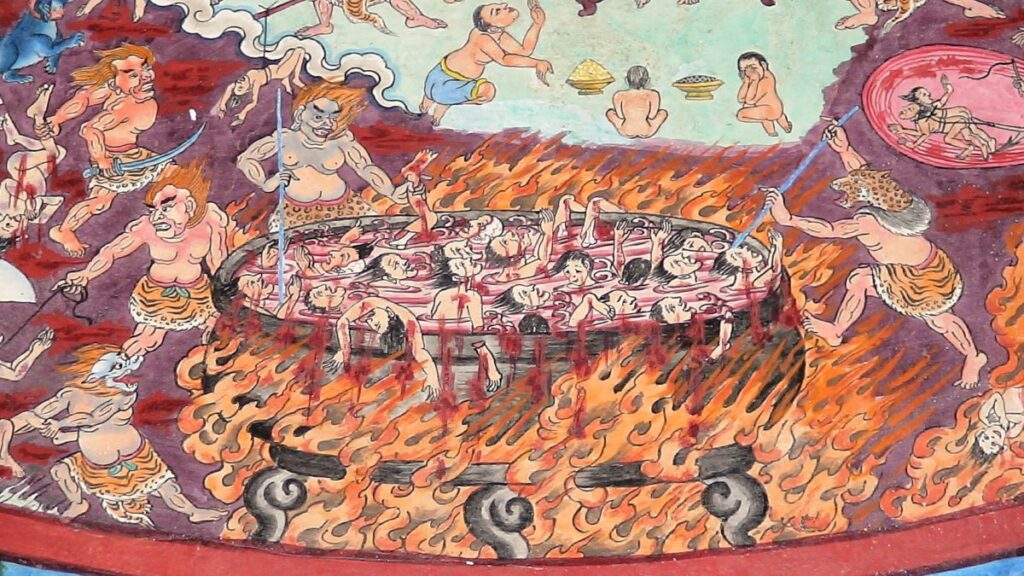Beliefs about the afterlife and the concept of hell vary widely among different religions and cultural traditions. Here are a few examples from various religious perspectives:
1. Christianity:
In traditional Christian theology, hell is often depicted as a place of eternal separation from God and intense suffering.
Punishments in hell are described in symbolic and metaphorical terms, such as fire and darkness, representing the absence of God’s light and presence.
2. Islam:
In Islam, hell is described as a place of punishment for those who have committed grave sins and rejected faith.
The Quran mentions various forms of punishment, including fire, boiling water, and torment inflicted by angels.
3. Hinduism:
Hinduism does not have a singular concept of hell. Instead, it incorporates the idea of karma, where individuals may experience the consequences of their actions in future lives.
There are, however, descriptions of various hells (naraka) in Hindu mythology, where individuals may temporarily undergo suffering based on their deeds.
4. Buddhism:
Buddhism doesn’t have a concept of eternal hell. The focus is on the cycle of reincarnation (samsara) and the consequences of one’s actions (karma).
Unwholesome actions may lead to rebirth in unfavorable realms, where suffering is experienced, but it is not eternal.
It’s important to note that beliefs about the afterlife, including the existence and nature of hell, are matters of faith and vary widely among individuals and religious traditions. Additionally, some religious and philosophical traditions do not incorporate the concept of hell at all. Interpretations and beliefs about hell are diverse and often shaped by cultural, historical, and theological factors.
